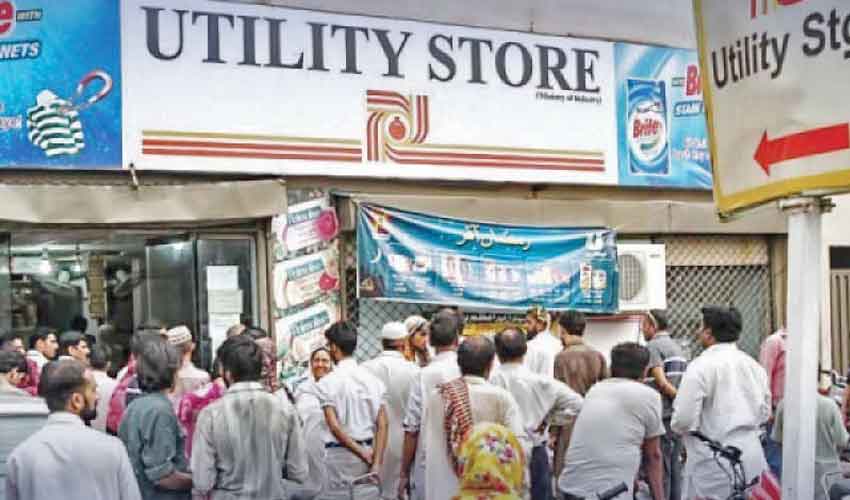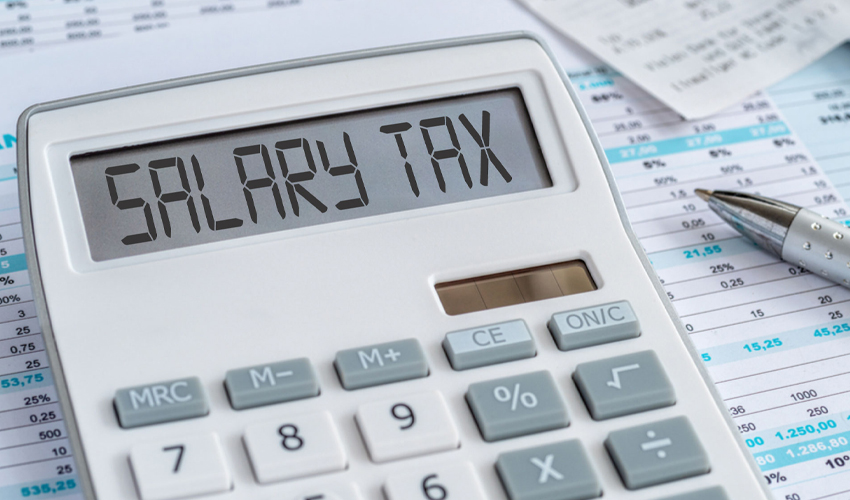The federal government has decided to close Utility Stores across the country, a move confirmed by the secretary of industries and production ministry during a Senate Standing Committee meeting on Friday.
The secretary told the meeting the decision was part of a broader strategy of the government to exit non-essential business operations, and that efforts were ongoing to reassign affected employees to other institutions.
The announcement was made during a meeting of the Senate Standing Committee on Industry and Production, which was chaired by Senator Aoun Abbas. The secretary emphasized that the government's aim is to streamline its operations by moving away from activities deemed non-essential.
According to the Utility Store management, the federal government has given them two weeks, while the subsidy on items available at the stores had already ended. According to the management, after the news of closure of the stores, there was concern among more than 11,000 employees, out of which 6,000 were permanent and others on contract and daily wages.
On the other hand, the standing committee took strict notice on the decision to close Utility Stores and sought details on the statement of the industries secretary. Committee Chairman Senator Aoun Abbas Bappi expressed concern over the government's decision.
"I was not aware of it. It is a very sad decision. No one was aware of the closure of the stores," he remarked, adding that the government did not know what will happen to the thousands of employees after the closure. "Where will the employees be adjusted? Will people be rendered unemployed?"
Prime Minister Shehbaz Sharif has asked for suggestions regarding the closure of Utility Stores and sought recommendations for introduction of an alternative system to the stores. The Utility Store Management has been instructions to expedite settlement of transactions with companies.
Sources said the Utility Stores had been proposed to hand over cash to BISP beneficiaries. The Rs60 billion subsidy introduced four days ago was ended two days ago.
Also Read: Govt ends discounted rates at Utility Stores
In addition to the Utility Store closure, the meeting featured a briefing from the Engineering Development Board on the electric vehicle policy. The board reported that local car manufacturers have failed to meet their vehicle export targets. The primary issue identified was the lack of production of auto parts at the local level, which has impeded the ability to export vehicles.
The committee chairman suggested withdrawing the export targets of vehicles.
The Engineering Development Board (EDB) provided a comprehensive briefing on the auto and electric vehicle policy. It said the high cost of cars in Pakistan was because of a plethora of taxes.
Senator Saleem Mandviwala said a typical car priced at Rs8 million included Rs4.8 million in taxes. He emphasized that reducing taxes could make cars more affordable. The CEO of a private company said they will reduce prices of vehicles as the government reduces taxes.
The meeting was briefed that the Auto Export Policy 2021-26 had set annual export targets between 2% and 10%. Officials of the board revealed that these targets were established without consultation with the auto industry.
Instead of withdrawing export targets, the EDB advocates for providing incentives to boost exports. Currently, the government offers a $50 facility for each motorcycle exported and proposes a similar scheme to support car exports.
The Auto Policy 2021-26 has already licensed 45 companies to manufacture electric vehicles. In 2021, the highest number of vehicles, around 300,000, was produced. For 2023-24, the country manufactured 10,378 hybrid vehicles and 20,811 electric bikes and rickshaws.
The EDB further said 44 companies have been licensed to produce two- and three-wheeler electric vehicles. “Any vehicle that is built without the company approval will not be able to ply on the road,” the officials insisted.
They further noted that over the past three years, car manufacturing companies have faced fines totaling Rs5.32 billion for late deliveries.
The committee chairman demanded full details of these fines and a transparent vehicle tracking system from booking to delivery on a dedicated website. Manufacturers who fail to export 7% of their production will be fined, with an expected increase to 10% in the next financial year.



























